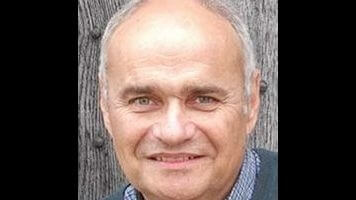The Ponzi scheme—most recently pulled off in a high-profile way by Bernie Madoff—was named after Charles Ponzi, a con man who convinced people to invest in a lucrative plot involving postal-reply coupons that didn’t exist. He wasn’t the first to pull this kind of investment stunt, but his notoriety was so great it came to be named after him.
Someone else was pulling a Ponzi scheme in the 1920s, at the same time as Ponzi was. Leo Koretz ran his scheme in Chicago, and whereas Ponzi’s bubble burst after a year of scamming investors, Koretz’s went on for nearly two decades. Journalist Dean Jobb traces the fascinating history of Koretz’s con, quoting from primary sources in such a way that the story reads closer to a novel than a historical report. In a story that’s begging to be turned into a Mad Men-esque prestige drama, Empire Of Deception follows Koretz’s fraud from beginning to end. That ending won’t be included here, because part of Jobb’s storytelling skill involves foreshadowing events to come without revealing them.
The pace moves briskly in Empire Of Deception, and readers may wish Jobb had taken some creative license to fill in the parts of the story not accounted for in the ledgers of police documents and newspaper reports. Jobb supplements that lack of information, however, with mesmerizing descriptions of 1920s Chicago, an age of vigorous growth and accumulations of wealth. Jobb’s sketches of another era invoke both nostalgia for a jazzed-up past and realizations of how much of this Chicago remains today. “It was the Windy City as well as a wicked one,” Jobb writes, “but the moniker had nothing to do with the winds blowing in from the prairie or the lake; the New York newspaperman who first used the term was mocking the bravado that surrounded everything about the place.”
The world’s first set of skyscrapers looked down on a city swelling in population, the inhabitants working to make Chicago an “unstoppable economic force.” Ambitious people flocked to Chicago to make money and gain power, and for every quaint description of the rise of automobiles, new electricity, and fashions of the day, Jobb includes true stories of the corruption and cronyism at every level of Chicago politics. A 1921 Chicago Tribune report exposed so much political corruption at city hall that Mayor “Big Bill” Thompson filed a libel suit seeking $10 million in damages to the city’s reputation (it was thrown out of court). The Tribune’s report included public school-board kick-backs and purchasing supplies at inflated prices—the best example of which is a $133 potato peeler (in 1921 dollars!). Kind of sounds like the current federal investigation into how Chicago Public School awards noncompete contracts. The slew of Chicago-specific historical details makes Empire Of Deception more enjoyable for readers familiar with the Windy City.
Koretz solidified his enormous scheme with his own family’s dollars, but the psychology behind the Ponzi may be its most fascinating aspect. Koretz excelled at reverse psychology, acting hesitant or outright refusing to sell his shares. In hindsight, many of his actions were obviously mocking his investors, which must have made it sting all the more when they found out the truth. Jobb doesn’t foray into the unknown, so he doesn’t extrapolate Koretz’s lying, cheating, and good-time-Johnny ways into a psychological examination. If there’s anything lacking, it’s filling in the blanks, though Jobb still impressively crafts a good story just by sticking to the facts.





























![Rob Reiner's son booked for murder amid homicide investigation [Updated]](https://img.pastemagazine.com/wp-content/avuploads/2025/12/15131025/MixCollage-15-Dec-2025-01-10-PM-9121.jpg)











